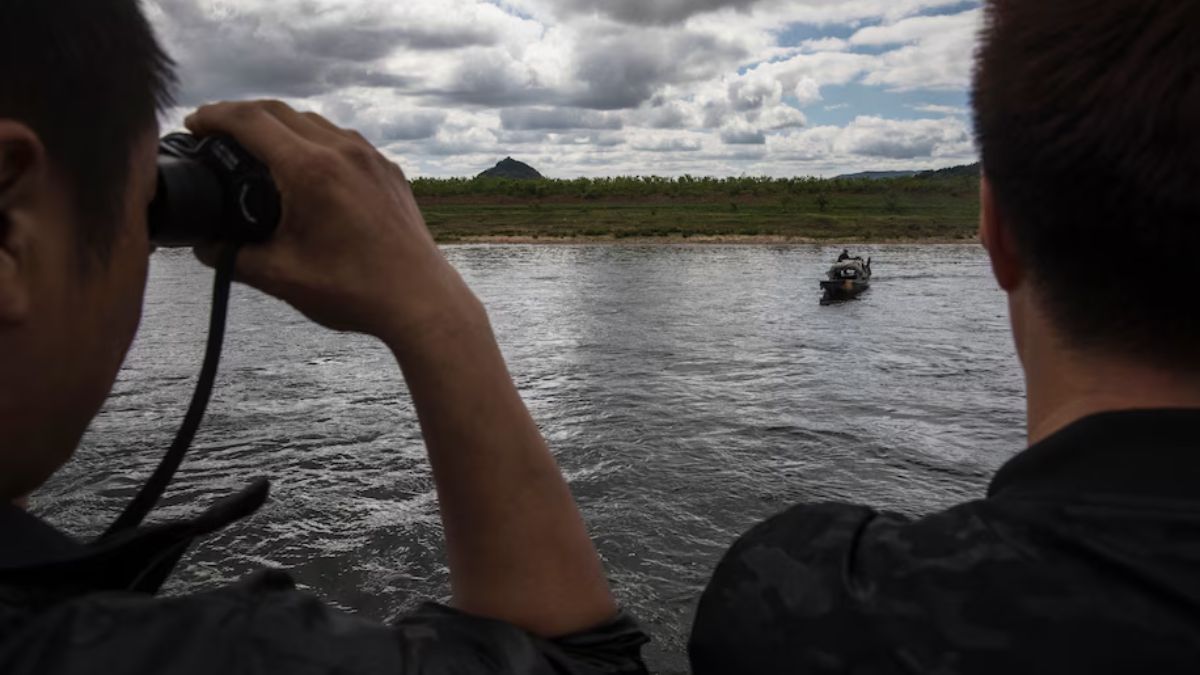Severe flooding from the Yalu River in the late July 2024, wreaked havoc across North Korea, particularly in the northwest region. The river, which marks the border between North Korea and China, overflowed due to unprecedented heavy rains, submerging entire villages and farmland along its banks. The flooding resulted in significant loss of life and property, with some estimates suggesting that up to 1,500 people may have perished or gone missing.
Amid the disaster, reports emerged of North Koreans risking their lives to save portraits of the country’s former leaders, Kim Il Sung and Kim Jong Il, as they fled their inundated homes. The preservation of these portraits is deeply ingrained in North Korean culture, where reverence for the Kim family is strictly enforced. The state’s propaganda apparatus has long promoted the notion that protecting these images is a matter of utmost loyalty and honor.
Despite the catastrophic situation, many residents were reportedly compelled to prioritize the rescue of these portraits over personal safety. This act underscores the extent of the regime’s control over its citizens, even in the face of life-threatening natural disasters.
The North Korean government’s handling of the flood has drawn significant criticism. Reports indicate that China had offered assistance to rescue stranded residents on islands in the Yalu River, but this offer was declined by Pyongyang. The refusal was allegedly driven by fears that those rescued might use the opportunity to flee to China permanently. This decision likely contributed to the high death toll, as floodwaters rapidly engulfed the islands.
Survivors have been subjected to constant surveillance and forced to watch propaganda videos portraying leader Kim Jong Un as a hero who “rescued” them, despite the delay in the regime’s response to the crisis. Expressions of grief are reportedly suppressed, with authorities forbidding flood victims from showing any signs of sadness.

